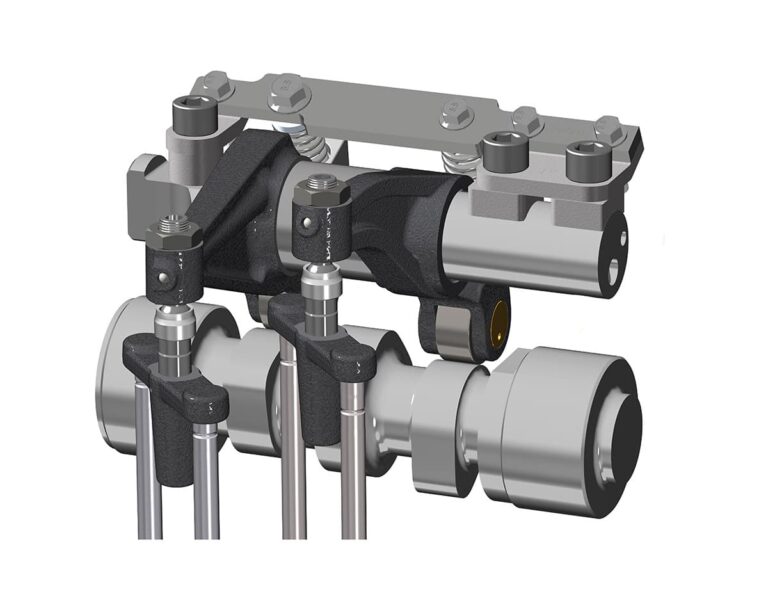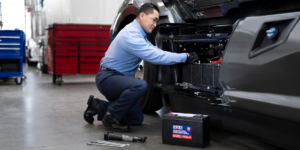BLOOMFIELD, Conn. — Jacobs Vehicle Systems, a worldwide manufacturer of heavy-duty diesel engine retarding systems and valve actuation systems, has entered into a collaboration with internal combustion controls company Tula Technology.
The two businesses will work closely together to enable Jacobs to further develop cylinder deactivation technologies, which reduce engine fuel consumption and emissions, according to Robb Janak, director new technology, Jacobs Vehicle Systems
Jacobs introduced its Cylinder Deactivation (CDA) technology for medium- and heavy-duty commercial vehicle engines in 2018.
Tula, unusual among engine technology businesses in having headquarters in Silicon Valley, has licensed its Dynamic Skip Fire (DSF) technology onto major automotive OEM gasoline applications.
The new working partnership between the two companies will utilize Tula’s DSF controls technology to support Jacobs’ expertise in diesel deactivation hardware development.
“Jacobs is very excited to partner with Tula to progress cylinder deactivation technology by combining our companies’ strengths,” Janak said. “Vehicle manufacturers are looking for new and improved technologies to comply with stricter legal limits on CO2 and NOx emissions. New test measures, such as Real Driving Emissions and CARB Low Load Cycle for heavy duty trucks are encouraging the adoption of smarter technologies that address these requirements. Cylinder deactivation is a great solution, technically proven and cost effective.”
With Jacobs’ CDA, Janak said cylinder deactivation mechanisms originally designed for the company’s High Power Density (HPD) engine brake are used in the valvetrain to disable the opening of the intake and exhaust valves. The hydraulically-activated mechanism is integrated in a collapsing valve bridge system for overhead camshaft engines or with a collapsing pushrod system for cam-in-block engines. When this is combined with disabled injection in selected cylinders, multiple cylinders can be deactivated as needed. At low engine loads with three of six cylinders deactivated, fuel consumption can be improved by up to 20%.
Janak said Jacobs’ CDA reduces emissions by achieving higher exhaust temperatures by maintaining after-treatment temperatures for optimal efficiency of SCR (Selective Catalytic Reduction) systems, even when the engine is in idle or low load operation. CDA also enables faster warm-up after engine start-up of the after-treatment system and minimizes cooling of after-treatment during coasting. CDA additionally reduces camshaft friction, reduces pumping losses in part-load conditions, and can reduce or eliminate use of the intake throttle, all of which yields overall improvements in fuel consumption while simultaneously increasing exhaust temperatures.
“Tula is pleased to support our industry partner Jacobs Vehicle Systems in its development of Dynamic Skip Fire-enabling hardware for the diesel engine marketplace,” said John Fuerst, senior vice president of Engineering at Tula. “Tula has developed an infinitely variable cylinder deactivation system, integrating advanced digital signal processing and software with sophisticated engine control algorithms. This technology reduces fuel consumption of gasoline engines by 6-15% on real world drive cycles; the collaboration with Jacobs aims to enable Jacobs to develop and demonstrate deactivation hardware required for diesel engines.”
The Trucker News Staff produces engaging content for not only TheTrucker.com, but also The Trucker Newspaper, which has been serving the trucking industry for more than 30 years. With a focus on drivers, the Trucker News Staff aims to provide relevant, objective content pertaining to the trucking segment of the transportation industry. The Trucker News Staff is based in Little Rock, Arkansas.











